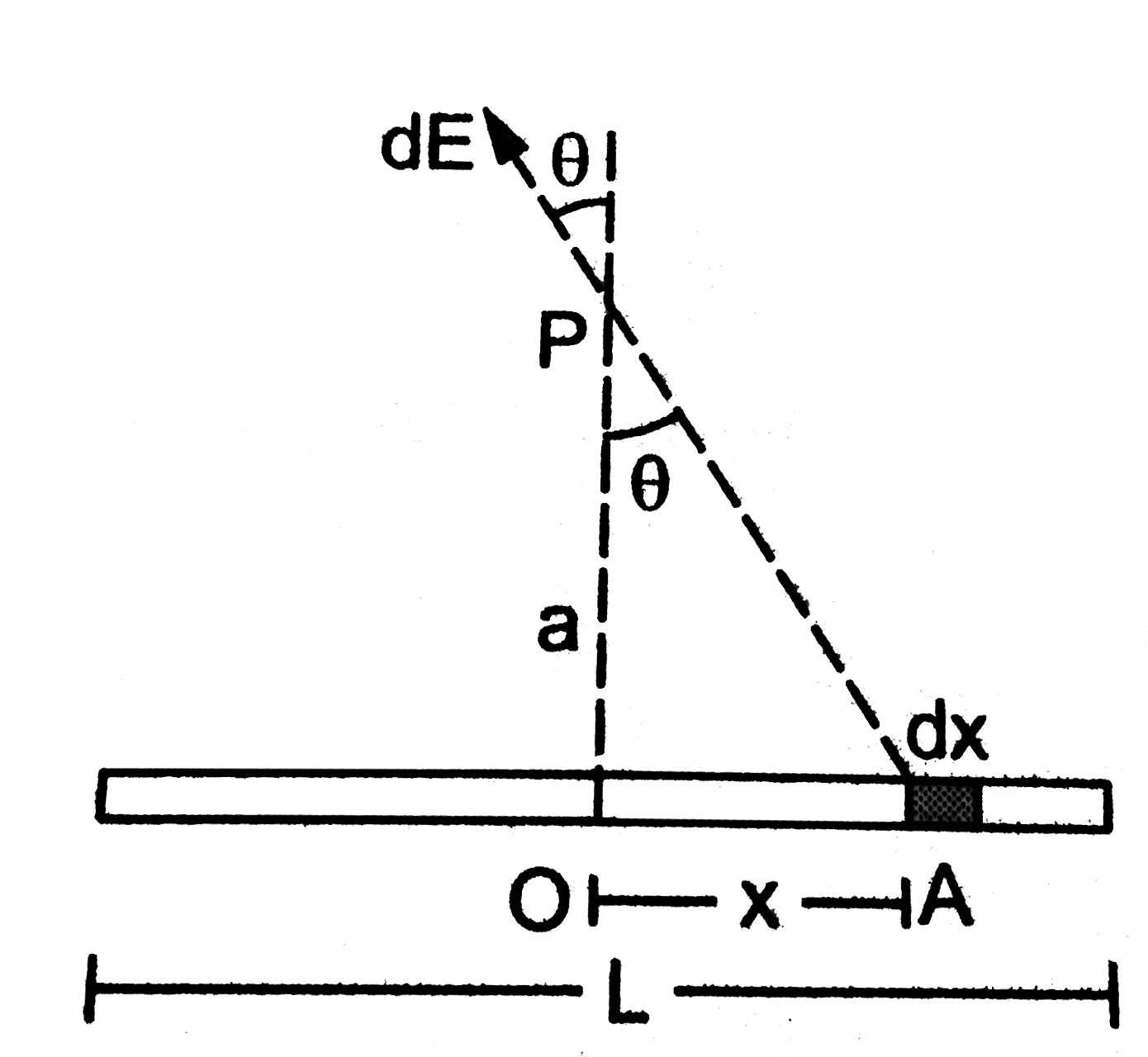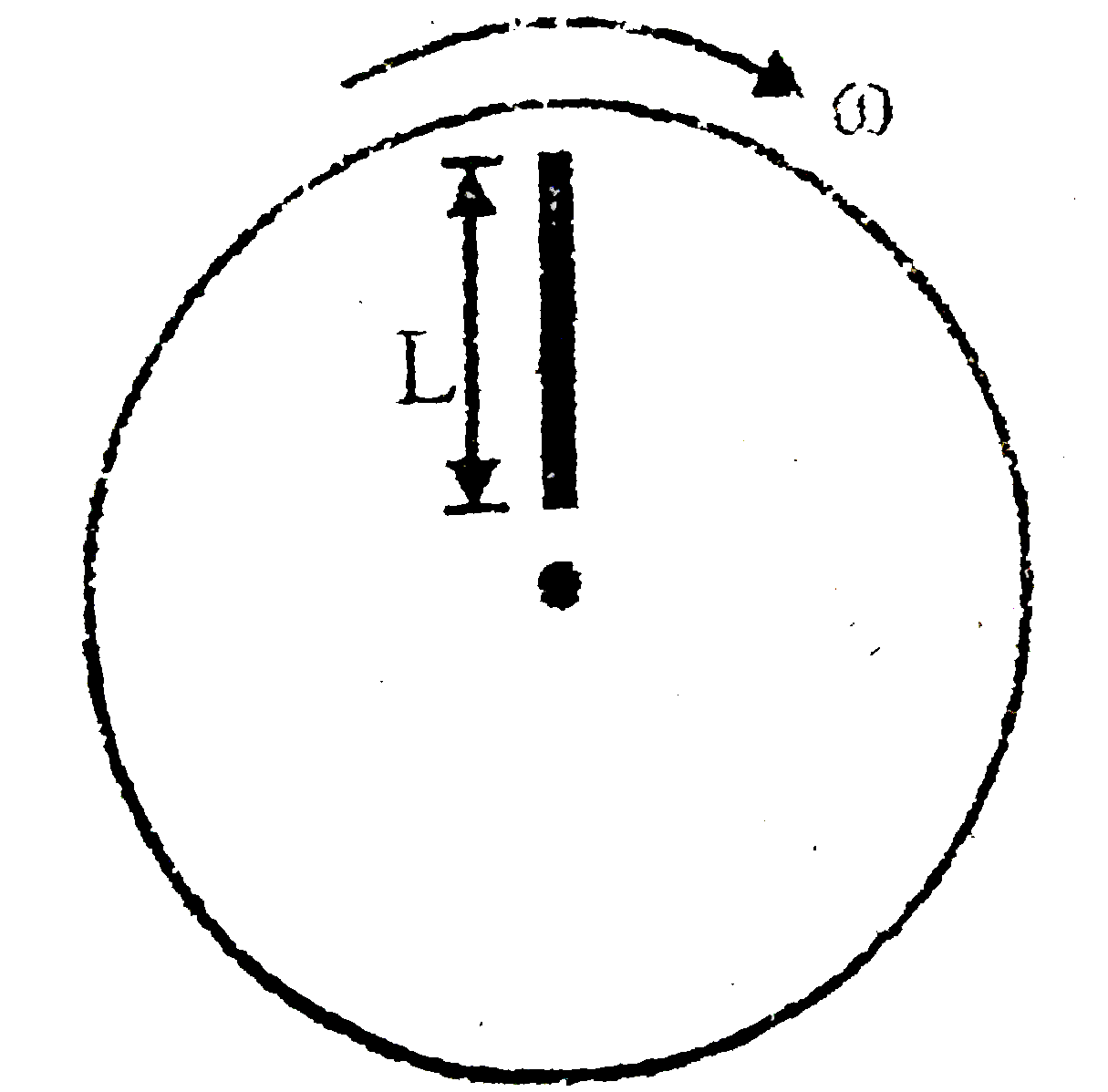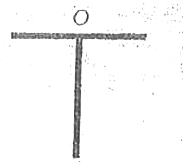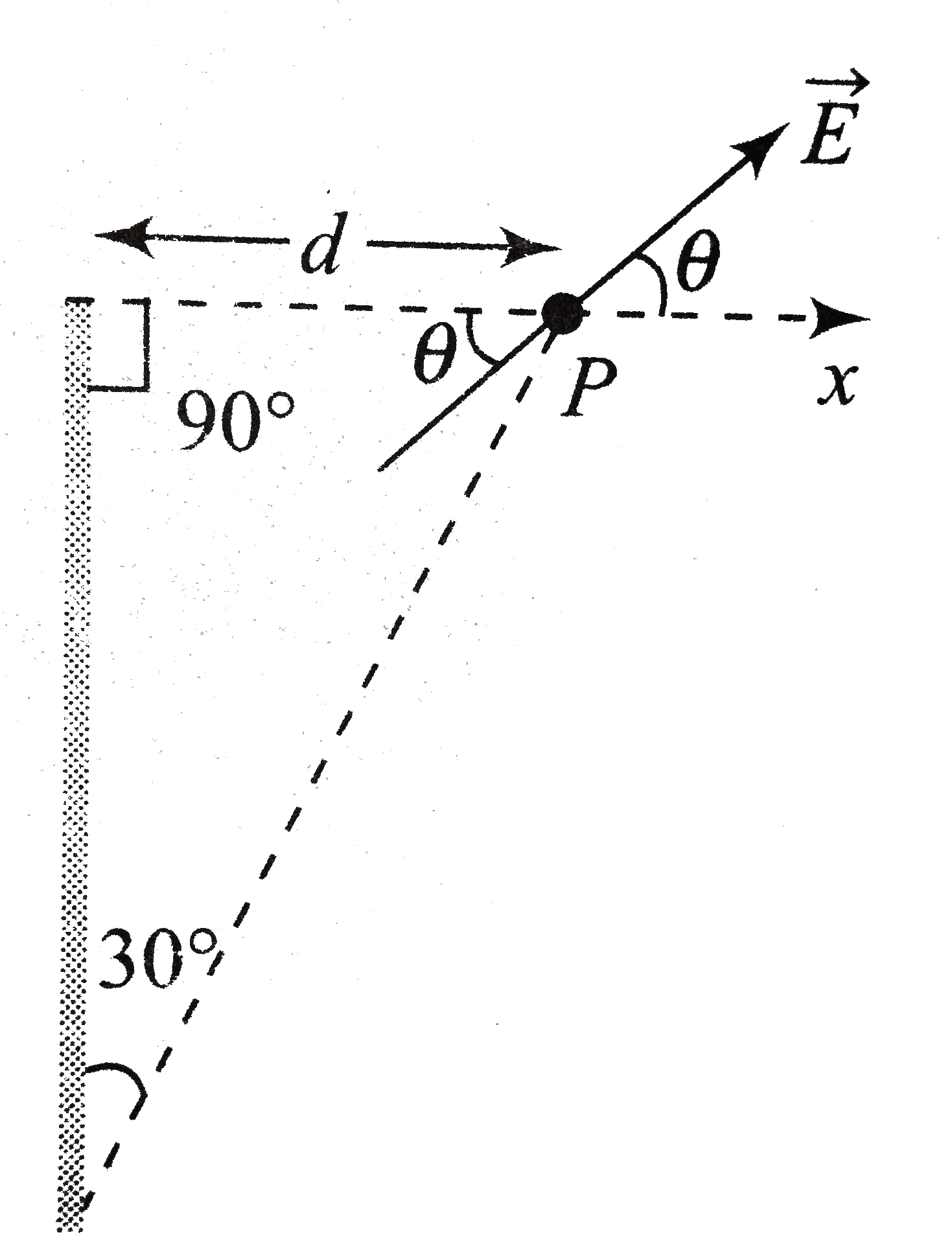Find the electric field at a point P on the perpendicular bisector of a uniformly charged rod. The length of the rod is L, the charge on it is Q and the distance of P from the centre of the rod is a.

Let us take an element of length dx at a distance x from
the centre of the rod . The charge on this
element is
dQ=QLdx.
The electric field at P due to this element is
dE=dQ4πε0(AP)2
. By symmetry, the resultant field at P will be along OP
(if the charge is positive). The component of dE along
OP is
dEcosθ=dQ4πε0(AP)2.OPAP=aQdx4πesilon0L(a2+x2)32
Thus, the resultant field at P is
E=∫dEcosθ
=aQ4πesilon0L∫L2−L2dxa2+x2(32).
We have x=atanθordx=asec2θdthη.
theus,∫dx(a2+x2)32=∫αsec2θdthηθalpah3sec3θ<br>= (1)/(a^2) int cos theta d theta = (1)/(a^2) sin theta = (1)/(alpha^2) (x)/(x^2 + alpha^2 )^(1/2)<br>.From(i)<br>E=(alphaQ)/(4piepsilon_0 La^2) [(x)/(x^2 + alpha^2 )^(1/2) ]_(-L/2)^(L/2)<br>= (aQ)/(4piepsilon_0 La^2) [(2L)/(L^2+4alpah^2)^(1/2)]<br>= (Q)/(2piepsilon_0 alpha sqrt(L^2+4a^2)).
Topper's Solved these Questions
- ELECTRIC FIELD AND POTENTIALBOOK - HC VERMA ENGLISHCHAPTER - ELECTRIC FIELD AND POTENTIALEXERCISE - Exercises
75 Videos
- ELECTRIC FIELD AND POTENTIALBOOK - HC VERMA ENGLISHCHAPTER - ELECTRIC FIELD AND POTENTIALEXERCISE - question for short answer
14 Videos
- ELECTRIC FIELD AND POTENTIALBOOK - HC VERMA ENGLISHCHAPTER - ELECTRIC FIELD AND POTENTIALEXERCISE - Objective 2
7 Videos
- ELECTRIC CURRENT THROUGH GASESBOOK - HC VERMA ENGLISHCHAPTER - ELECTRIC CURRENT THROUGH GASESEXERCISE - Short answer
6 Videos
- ELECTROMAGNETIC INDUCTIONBOOK - HC VERMA ENGLISHCHAPTER - ELECTROMAGNETIC INDUCTIONEXERCISE - Questions for short answer
9 Videos
Similar Questions
Find the electric field at a point P on the perpendicular bisector of a uniformly charged rod. The length of the rod is L, the charge on it is Q and the distance of P from the centre of the rod is a.
View SolutionThe electric foield at a point A on the perpendicular bisector of a uniformly charged wire of length l=3m and total charge q = 5 nC is x V/m. The distance of A from the centre of the wire is b = 2m. Find the value of x.
View SolutionWhat is the electric field intensity at any point on the axis of a charged rod of length 'L' and linear charge density λ? The point is separated from the nearer end by a.
View SolutionThe radius of gyration of a uniform rod of mass m and length l about an axis perpendicular to its length and at distance l4 from its centre will be
View SolutionElectric charge Q is uniformly distributed around a thin ring of radius a. find the potential a point P on the axis of the ring at a distance x from the centre of the ring .

View SolutionA uniform rod of mass m and length L lies radialy on a disc rotating with angular speed ω in a horizontal plane about vertical axis passing thorugh centre of disc. The rod does not slip on the disc and the centre of the rod is at a distance 2L from the centre of the disc. them the kinetic energy of the rod is

View SolutionTwo uniform thin rods each of length L and mass m are joined as shown in the figure. Find the distance of centre of mass the system from point O

View SolutionA ring of radius a contains a charge q distributed. uniformly ober its length. Find the electric field at a point. on the axis of the ring at a distance x from the centre.
View SolutionMoment of inertia of a uniform rod of mass m and length l is 712ml2 about a line perpendicular to the rod. Find the distance of this line from the middle point of the rod.
View SolutionThe direction (θ) of →E at point P due to uniformly charged finite rod will be

View Solution
